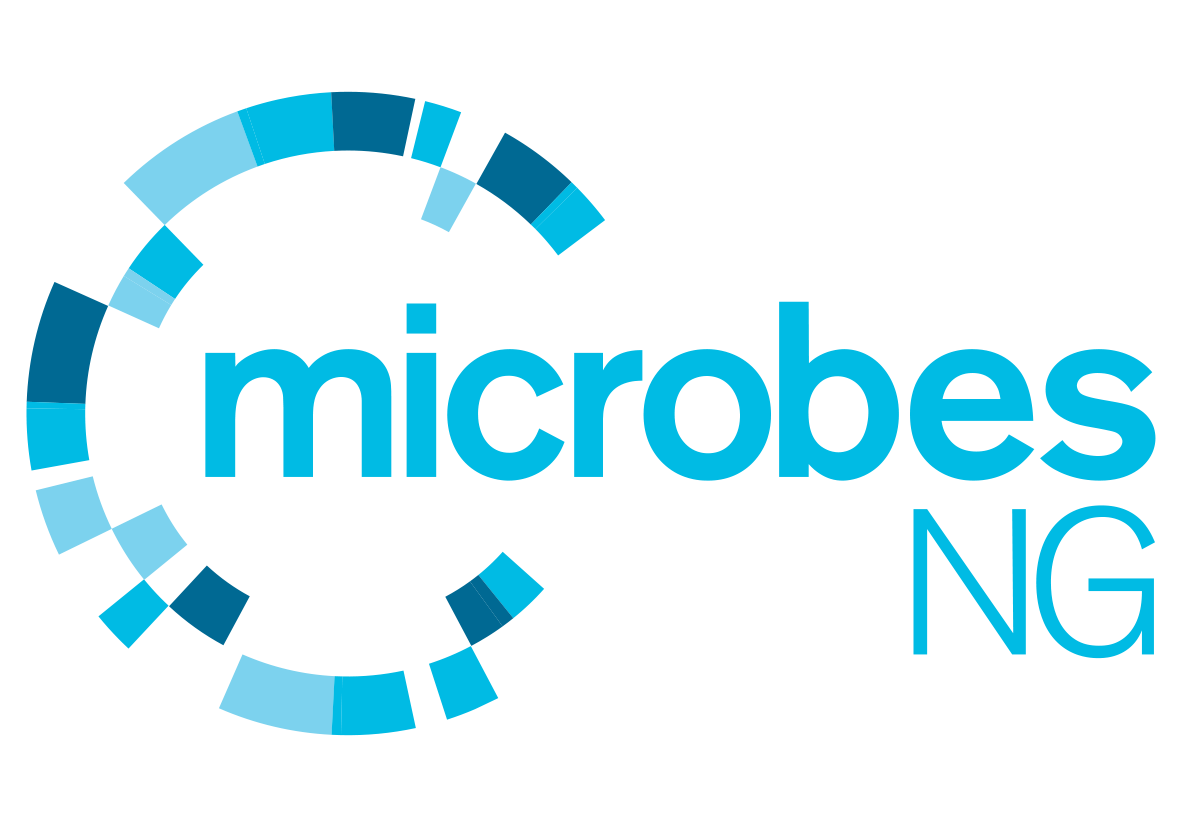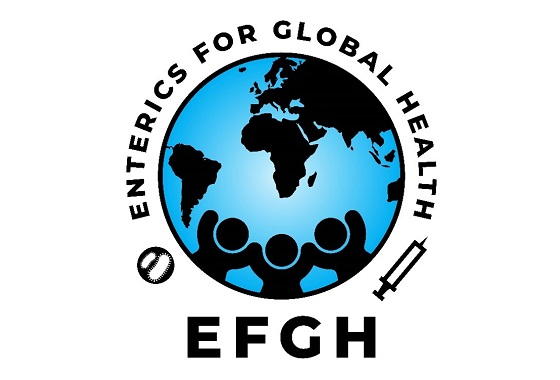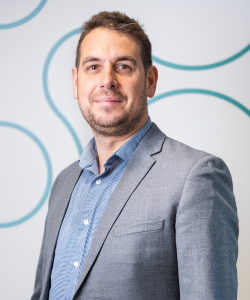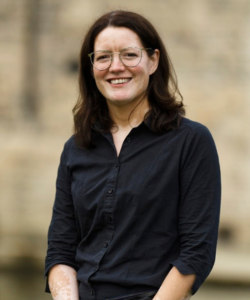

10 December 2024 - Every year nearly half a million (443, 832) children under five are killed by diarrhoeal disease, making it the third leading cause of death in children globally (World Health Organisation figures). Among these illnesses, shigellosis—a severe diarrhoeal disease caused by Shigella bacteria—claims an estimated 63,000 young lives annually.
Currently, there is no vaccine for Shigella. This, coupled with increasing antibiotic resistance (where the bug becomes resistant to the drugs that we use for treatment) means there is a high death rate among children in low-and-middle-income countries (LMICs). To tackle this pressing issue, a global consortium of scientists supported by the Bill & Melinda Gates Foundation (The Enterics for Global Health) has been tasked with better understanding the scale of Shigella infections and the role of antibiotic resistance in seven countries: Malawi, Bangladesh, Mali, The Gambia, Kenya, Peru, and Pakistan.
Birmingham-based sequencing company MicrobesNG, which was established ten years ago by Nick Loman, Professor of Microbial Genomics at the University of Birmingham, has been chosen to play a pivotal role in the project. MicrobesNG will use advanced technology to sequence the DNA of the Shigella bacteria, enabling the international teams to decode this genetic information and better understand how to combat the disease.
With this data, and with support from Professor Kate Baker at the University of Cambridge and Dr Jennifer Cornick at the University of Liverpool, the teams will identify genetic variants of Shigella strains from more than 1200 children across 6 countries and track its transmission. Ultimately the results will be crucial for developing Shigella vaccination plans, which could hugely reduce the incidence of the disease and impact the rates of antimicrobial resistance.
Professor Kate Baker, Chair in Applied Microbial Genomics University of Cambridge, United Kingdom Health Security Agency, Principal investigator on the molecular project said: “Shigella have been a leading cause of diarrheal disease for over a century and now we are finally able to focus our research in the regions where the most disease occurs. This study will give us the information we need to find new ways to tackle this old disease. By working together across borders we can understand the genetic variants of Shigella that are causing disease, track transmission and help shape vaccination programs. Just like with COVID-19, understanding genetic changes over time is crucial for tracking spread of disease. MicrobesNG is an incredible partner for the group and has allowed us to work together across borders.”
Dr Jennifer Cornick, University of Liverpool, co-Principal investigator and Malawi Liverpool Wellcome Research Programme site-lead said:
"As part of the work we will be working with scientists across the countries to empower them to analyse and interpret the data themselves, providing information to help shape healthcare delivery and policy. It’s important to remember that each of these strains comes from sick children and ultimately this data will improve the treatment outcomes on the ground."
Professor Nick Loman, founder and Chief Scientific Officer at MicrobesNG, a pioneer of genome sequencing, explained: “Genome sequencing is a very exciting and rapidly evolving field. In this instance, we are extracting information from the genetic code to help fight a deadly disease. This project is a wonderful realisation of the hope I had in setting up MicrobesNG ten years ago; that any research team, anywhere in the world could access affordable, high-quality genomic sequencing for their work. This will give Professor Baker, Dr Cornick, and the team the vital information needed to reduce the burden of this horrible childhood disease.”
Dr. Patricia Pavlinac, University of Washington, Seattle, US, Coordinating Principle Investigator of EFGH added: “The EFGH study represents an important partnership among researchers around the world working together towards a common goal of averting Shigella disease. Equipped with Shigella sequencing data from MicrobesNG and training in the analysis and interpretation this sub study is positioned to make a huge impact in our understanding of shigellosis worldwide.”
Additional Quotes from EFGH Consortium:
"The EFGH platform provided an unique opportunity to work on Shigella intensively with 7 countries in Asia, Africa and Latin America. We derived new burden data which shows how high the incidence is in children 6-35 months old. Important data on emerging antibiotic resistance in different species and serogroups of Shigella have been derived. The need for further evaluation is ongoing with MicrobesNG to determine subtle changes occurring at the genomic level. Such information will inform policy makers regarding the urgency of vaccines for protection against a disease that leads to mortality but also growth faltering and stunting".
Dr. Firdausi Qadri, iccdr, Bangladesh, Principle Investigator of the EFGH-Bangladesh
“The EFGH project represents a crucial opportunity to deepen our understanding of Shigella disease burden, which remains a significant public health problem in Kenya, particularly among children. Collaborating with our international research partners and MicrobesNG on the genomic sequencing of Shigella strains will yield vital insights into the pathogen's resistance mechanisms and epidemiology. This partnership strengthens our ability to develop evidence-based strategies, including vaccine development and improved treatment protocols, ultimately addressing the impact of Shigella infections both locally and globally." Dr. Richard Omore, Principle Investigator of the EFGH KEMRI-CGHR Kenya site
"This study marks a significant step forward in understanding and addressing the burden of Shigella in The Gambia. By sequencing Shigella isolates, we are uncovering vital data that will not only shape global strategies for combating this pathogen but also directly benefit children in The Gambia, who are most vulnerable to diarrheal diseases. Our work reinforces The Gambia’s leadership in global health research and prepares the country for future Shigella vaccine trials. This brilliant initiative builds on the successes of earlier projects, such as the Global Enterics Multicenter Study (GEMS) and the Vaccine Impact on Diarrhea in Africa (VIDA) and positions The Gambia as a critical site for future vaccine and prevention strategies against Shigella. This research leverages advanced genomic techniques to sequence Shigella isolates, providing critical insights into antibiotic resistance, local disease patterns, and opportunities for vaccine development. We are grateful to be part of the EFGH Consortium and this wonderful initiative working with MicrobesNG to better understand Shigella dynamics in The Gambia." Dr Jahangir Hossain, Principal Investigator of the EFGH at MRC Unit The Gambia at LSHTM
ENDS
Notes to Editors:

Professor Nick Loman, CSO of MicrobesNG.

Professor Kate Baker, Chair in Applied Microbial Genomics, University of Cambridge.
About MicrobesNG MicrobesNG is a specialised microbial whole genome sequencing company based on The University of Birmingham research park. Over the last ten years Microbes NG has grown rapidly, providing its highly accessible and affordable services to customers in more than 40 countries around the world.
About EFGH The international team of scientists from The Gambia, Kenya, Malawi and Pakistan, Peru, Mali, Bangladesh are part of the The Enterics for Global Health (EFGH) network which is a Shigella surveillance study.
About University of Liverpool Founded in 1881 as the original ‘red brick’, the University of Liverpool is one of the UK’s leading research-intensive higher education institutions with an annual turnover of £675.1 million, including an annual research income of £160.6 million. Consistently ranked in the top 200 universities worldwide, they are a member of the prestigious Russell Group of the UK’s leading research universities and have a global reach and influence that reflects their academic heritage as one of the country’s largest civic institutions. The latest UK rankings of circa 130 institutions have placed the University of Liverpool at 23rd (Times and Sunday Times Good University Guide 2025), 27th (2025 Guardian University Guide), 25th (Daily Mail University Guide 2025) and 19th (2025 Complete University Guide) nationally.
About University of Cambridge The University of Cambridge is one of the world’s leading universities, with a rich history of radical thinking dating back to 1209. Its mission is to contribute to society through the pursuit of education, learning and research at the highest international levels of excellence. Cambridge was second in the influential 2024 QS World University Rankings, the highest rated institution in the UK. The University comprises 31 autonomous Colleges and over 100 departments, faculties and institutions. Its 24,000 students include around 9,000 international students from 147 countries. In 2023, 73% of its new undergraduate students were from state schools and more than 25% from economically disadvantaged backgrounds. Cambridge research spans almost every discipline, from science, technology, engineering and medicine through to the arts, humanities and social sciences, with multi-disciplinary teams working to address major global challenges. In the Times Higher Education’s rankings based on the UK Research Excellence Framework, the University was rated as the highest scoring institution covering all the major disciplines. A 2023 report found that the University contributes nearly £30 billion to the UK economy annually and supports more than 86,000 jobs across the UK, including52,000 in the East of England. For every £1 the University spends, it creates £11.70 of economic impact, and for every £1 million of publicly-funded research income it receives, it generates £12.65 million in economic impact across the UK. The University sits at the heart of the ‘Cambridge cluster’, in which more than 5,000 knowledge-intensive firms employ more than 71,000 people and generate £21 billion in turnover. Cambridge has the highest number of patent applications per 100,000 residents in the UK.
Media enquiries: enquiries@jillbrownmedia.com